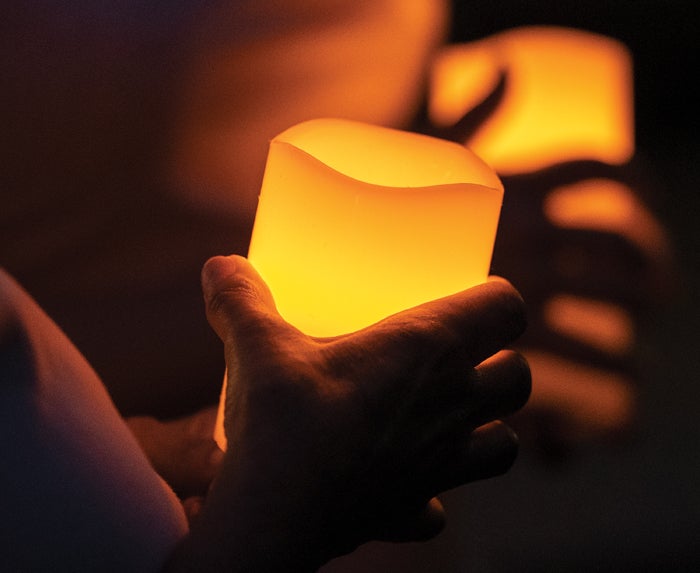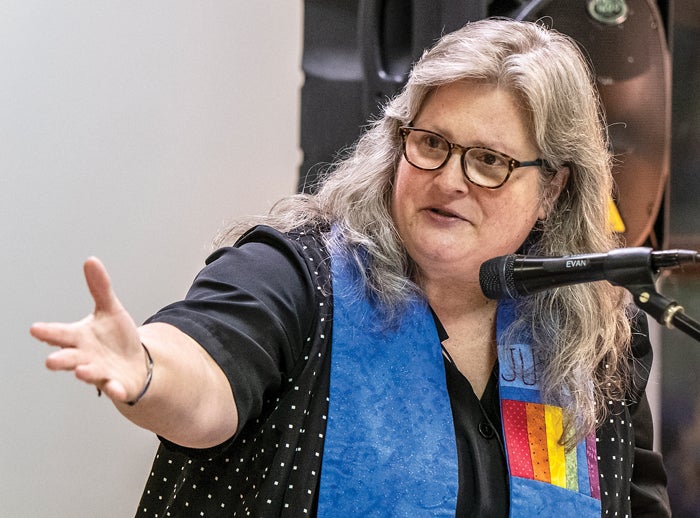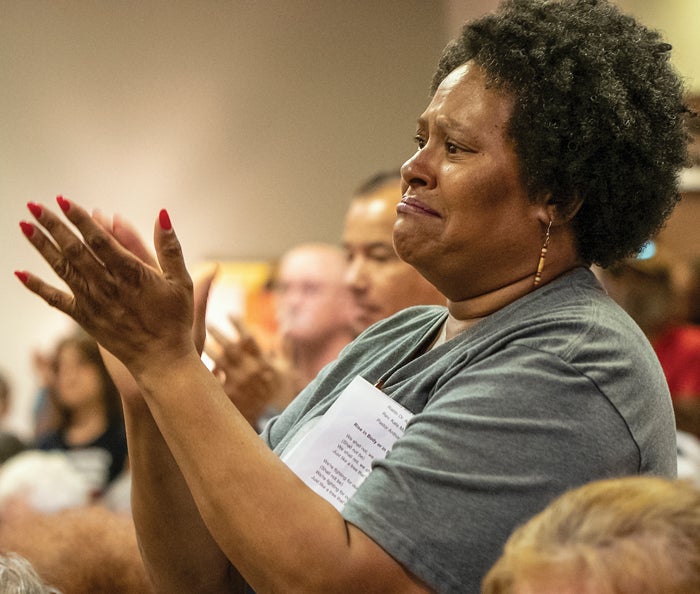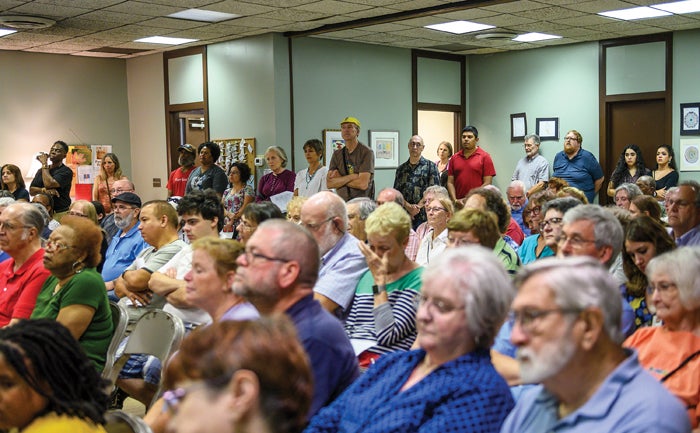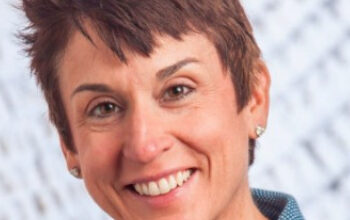‘Cry out for mercy and for justice’: Salisbury vigil calls for end of migrant detainment
Published 12:00 am Saturday, July 13, 2019
By Liz Moomey
liz.moomey@salisburypost.com
SALISBURY — Gathered outside Piedmont Unitarian Universalist Church, protesters sang “This Little Light of Mine” as they held candles and called for an end to the inhumane treatment of migrants and asylum seekers.
Salisbury’s “Lights for Liberty” vigil was one of the many held outside detention centers and in hundreds of other locations nationwide on Friday night.
Earlier in the evening, the activists joined inside the church to hear community and faith leaders. They included the Rev. Mary Frances Comer of Piedmont Unitarian Universalist Church; Rabbi Andrew Ettin of Temple Israel; the Rev. Kate Morrison of John Calvin Presbyterian Church; Pastor Anthony Smith of Mission House; and Evelyn Medina, the owner of Mean Mug coffeeshop.
“Tonight we come together to say enough,” Morrison said. “Tonight we come together to say this behavior on the behalf of our government and our country cannot be allowed to stand. Tonight we come together to cry out for mercy and for justice.”
Comer said the vigil wasn’t just a call to end cruelty but for revolutionary love. She referenced the words on the Statue of Liberty.
“We’re calling for a country we claim to be: a place where the tired, the poor and hungry are welcome, and where they can find liberty. And so may we usher in that reality,” Comer said.
Ettin recited the “Merger Poem” by Judy Chicago.
“All that has divided us will merge and then compassion will be wedded to power,” he said, adding that the greed of some will give in to the needs of many and they will all share the earth’s abundance.
There was a feeling of hope and encouragement in the standing-room-only church knowing that those gathered there and in hundreds of other locations were united.
“I remain hopeful today for all of y’all in this building today, because there are meetings like this all over this country right now where people are sounding the alarm,” Smith said. “An alarm that says that, one, we don’t like what is happening on the border. We don’t like what is happening, but also it says that people are beginning to wake up.”
Medina told of being smuggled into the U.S. to be reunited with her mother when she was 7. She hadn’t seen her mother since she was 1.
“It wouldn’t be until many years later that I would understand that her sacrifice was the ultimate sacrifice,” Medina said. “My children are in the back, and as I look at their faces, I could not imagine having to be separated for a minute, much less six years.”
She said she was listening to the radio one day and commentators were comparing the feeling migrant families have to that of those who jumped out of the Twin Towers on Sept. 11.
“Do you think they thought, ‘I will live if I jump from the 115th floor of the towers?’” Medina said. “No. Why did they do it? They did it in desperation. They did it because the alternative was worse. Why do these families travel thousands of miles? As someone who lived in Guatemala as a child with my mother, I can tell you they do it in desperation, because the alternative is worse.”
Medina said she would walk thousands of miles if it meant her kids would be safe again, like the migrant families.
“I think of my 15-year-old daughter,” Medina said. “If I knew that gang members were going to come and kidnap her and prostitute her and traffic her, would I walk 3,000 miles to the northern border to save my daughter’s life? You’re damn right I would. Would you not?”
Medina said it is not an immigration problem but a human problem.
Morrison spoke of when she learned about the Holocaust in fifth grade and thought, “We could not let this happen again.” In graduate school, she learned about the internment of Japanese-Americans during World War II. Again, she thought, “we cannot allow for anything to happen like this again.”
“We must learn from our nation’s history and the history of the world to ensure that we are never again faced with the likes of concentration camps,” Morrison said. “Yet here we are.”
She said we should treat everyone like they are our neighbors — our siblings across the globe — and show mercy for those in need.
“Yet when our neighbors to the south come to this country seeking shelter and aid, we do not show mercy. Instead, we show them the insides of cramped cages,” Morrison said. “When our neighbors come seeking a dream of a new and safer life for themselves and for their families, we rip their children from their arms and say that it’s for the best.”
Smith said he feels despair but is reminded that our ancestors fought similar battles. Therefore, Americans can fight as well for those in detainment at the southern border.
“We fight like our ancestors fought,” Smith said. “All those who fought for abolition, all those who fought for women’s rights, those who fought for the civil rights movement, those who are fighting for our brothers and sisters who are queer, trans, lesbian, gay and so forth. We fight like those who have always been fighting. We fight with weapons of mass democracy.”
Several of the speakers said the fight must be done through voting and encouraging others to vote as well.


